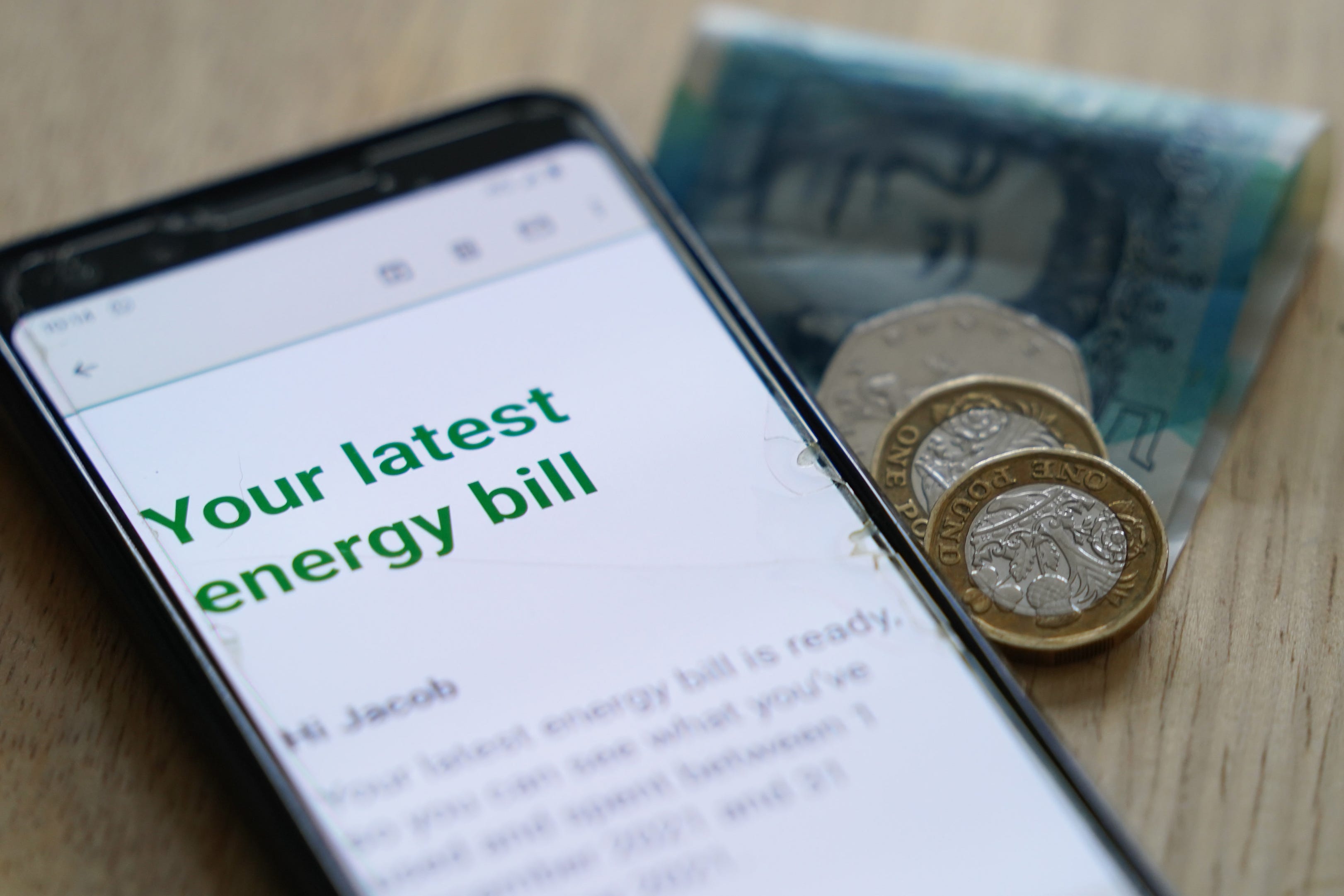Millions of households struggle to pay energy bills despite price drop – charity
As the new price cap comes into effect, findings from National Debtline suggest 6.1 million people are struggling to pay their energy bills.

Your support helps us to tell the story
From reproductive rights to climate change to Big Tech, The Independent is on the ground when the story is developing. Whether it's investigating the financials of Elon Musk's pro-Trump PAC or producing our latest documentary, 'The A Word', which shines a light on the American women fighting for reproductive rights, we know how important it is to parse out the facts from the messaging.
At such a critical moment in US history, we need reporters on the ground. Your donation allows us to keep sending journalists to speak to both sides of the story.
The Independent is trusted by Americans across the entire political spectrum. And unlike many other quality news outlets, we choose not to lock Americans out of our reporting and analysis with paywalls. We believe quality journalism should be available to everyone, paid for by those who can afford it.
Your support makes all the difference.Some 6.1 million households are still struggling to pay their energy bills, despite dropping prices, according to figures.
Latest energy debt figures from Ofgem show levels now stand at a record £3.1 billion.
National Debtline said its findings suggested 6.1 million people were struggling to pay their energy bills.
While the lower price cap would bring some relief, the service called for “urgent action” to help those facing unaffordable arrears.
As millions of people worry about keeping up with their energy payments, arrears levels have continued to increase and many have been left with unaffordable debts as a result
It said energy debt was one of the most common debt types among those who contacted it for support.
Steve Vaid, chief executive of the Money Advice Trust, the charity that runs National Debtline, said: “The fall in the price cap will alleviate some of the pressure many households are under, but our findings show that many more will continue to struggle as energy bills remain high.
“As millions of people worry about keeping up with their energy payments, arrears levels have continued to increase and many have been left with unaffordable debts as a result.
“What we need to see from the next Government is urgent action through a Help to Repay scheme to help people trapped in energy debt access a safe route out.
“Anyone struggling with their energy bills, or worried about their finances, should contact National Debtline as soon as possible – our advisers are here to help.”
In May, Ofgem’s director general of markets, Tim Jarvis, told the Energy Security and Net Zero Committee that so-called customer bad debt had soared by more than 50% over the previous 12 months.
Mr Jarvis told MPs that bad debt, when customers are unable to pay their energy bill, was now “one of the biggest challenges we’ve got in the sector right now”.
He said: “If you look at bad debt over the last 12 months, it’s increased by over 50%. So it’s gone from £2 billion to over £3 billion.
“We’ve seen an increase both in the numbers of people in debt but also a much bigger increase in the total amount of debt, suggesting those people are getting further and further into debt.”
Historically, the cost of bad debt has been spread across all customers, at roughly around £23 a year.
However in February, Ofgem announced it was allowing a temporary additional cost to customers of £28, taking the overall charge to about £50 a year, to make sure suppliers had enough funds to support customers who are struggling.
However, Mr Jarvis suggested to the the committee that the charge was “unsustainable”, saying: “Going forward we think that risks being unsustainable, to be honest, spreading those costs across the whole customer base in that way is not the best way to tackle the underlying causes of that.”